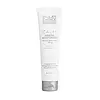What's inside
What's inside
 Key Ingredients
Key Ingredients

 Benefits
Benefits

 Concerns
Concerns

 Ingredients Side-by-side
Ingredients Side-by-side

Water
Skin ConditioningEthylhexyl Methoxycinnamate
UV AbsorberDiethylamino Hydroxybenzoyl Hexyl Benzoate
UV FilterEthylhexyl Salicylate
UV AbsorberEthylhexyl Triazone
UV AbsorberDicaprylyl Carbonate
EmollientDimethicone
EmollientIsononyl Isononanoate
EmollientBis-Ethylhexyloxyphenol Methoxyphenyl Triazine
Skin ConditioningPolymethyl Methacrylate
Tapioca Starch
Steareth-2
EmulsifyingSteareth-21
CleansingHydroxyethyl Acrylate/Sodium Acryloyldimethyl Taurate Copolymer
Emulsion StabilisingButylene Glycol
HumectantPhenoxyethanol
PreservativeParfum
MaskingCetyl Alcohol
EmollientChlorphenesin
AntimicrobialBrassica Campestris Sterols
EmollientO-Cymen-5-Ol
AntimicrobialTocopheryl Acetate
AntioxidantXanthan Gum
EmulsifyingPolysorbate 60
EmulsifyingRaspberry Seed Oil/Palm Oil Aminopropanediol Esters
Skin ConditioningSorbitan Isostearate
EmulsifyingPolymethylsilsesquioxane
Sorbitol
HumectantCitric Acid
BufferingAsiaticoside
AntioxidantPhytosphingosine
Skin ConditioningBHT
AntioxidantPanax Ginseng Root Extract
EmollientMaltodextrin
AbsorbentCI 14700
Cosmetic ColorantTocopherol
AntioxidantAscophyllum Nodosum Extract
Skin ConditioningAsparagopsis Armata Extract
Skin ProtectingPotassium Sorbate
PreservativeWater, Ethylhexyl Methoxycinnamate, Diethylamino Hydroxybenzoyl Hexyl Benzoate, Ethylhexyl Salicylate, Ethylhexyl Triazone, Dicaprylyl Carbonate, Dimethicone, Isononyl Isononanoate, Bis-Ethylhexyloxyphenol Methoxyphenyl Triazine, Polymethyl Methacrylate, Tapioca Starch, Steareth-2, Steareth-21, Hydroxyethyl Acrylate/Sodium Acryloyldimethyl Taurate Copolymer, Butylene Glycol, Phenoxyethanol, Parfum, Cetyl Alcohol, Chlorphenesin, Brassica Campestris Sterols, O-Cymen-5-Ol, Tocopheryl Acetate, Xanthan Gum, Polysorbate 60, Raspberry Seed Oil/Palm Oil Aminopropanediol Esters, Sorbitan Isostearate, Polymethylsilsesquioxane, Sorbitol, Citric Acid, Asiaticoside, Phytosphingosine, BHT, Panax Ginseng Root Extract, Maltodextrin, CI 14700, Tocopherol, Ascophyllum Nodosum Extract, Asparagopsis Armata Extract, Potassium Sorbate
Water
Skin ConditioningEthylhexyl Palmitate
EmollientZinc Oxide
Cosmetic ColorantCyclomethicone
EmollientTitanium Dioxide
Cosmetic ColorantDimethicone
EmollientGlyceryl Stearate
EmollientPEG-100 Stearate
C12-15 Alkyl Benzoate
AntimicrobialPolysorbate 80
EmulsifyingCaprylyl Methicone
Skin ConditioningSodium Acrylate/Sodium Acryloyldimethyl Taurate Copolymer
Emulsion StabilisingIsohexadecane
EmollientCetyl Alcohol
EmollientPropylene Glycol
HumectantPolyglyceryl-6 Isostearate
EmulsifyingAllantoin
Skin ConditioningChamomilla Recutita Flower Extract
MaskingCamellia Sinensis Leaf Extract
AntimicrobialGlycyrrhiza Glabra Root Extract
BleachingAloe Barbadensis Leaf Juice
Skin ConditioningGlycerin
HumectantPanthenol
Skin ConditioningAlgae Extract
EmollientLauryl PEG-9 Polydimethylsiloxyethyl Dimethicone
Skin ConditioningPolyhydroxystearic Acid
EmulsifyingTriethoxysilylethyl Polydimethylsiloxyethyl Hexyl Dimethicone
Skin ConditioningCaprylyl Glycol
EmollientButylene Glycol
HumectantDiethylhexyl Carbonate
EmollientTriethoxycaprylylsilane
Disodium EDTA
Phenoxyethanol
PreservativeChlorphenesin
AntimicrobialWater, Ethylhexyl Palmitate, Zinc Oxide, Cyclomethicone, Titanium Dioxide, Dimethicone, Glyceryl Stearate, PEG-100 Stearate, C12-15 Alkyl Benzoate, Polysorbate 80, Caprylyl Methicone, Sodium Acrylate/Sodium Acryloyldimethyl Taurate Copolymer, Isohexadecane, Cetyl Alcohol, Propylene Glycol, Polyglyceryl-6 Isostearate, Allantoin, Chamomilla Recutita Flower Extract, Camellia Sinensis Leaf Extract, Glycyrrhiza Glabra Root Extract, Aloe Barbadensis Leaf Juice, Glycerin, Panthenol, Algae Extract, Lauryl PEG-9 Polydimethylsiloxyethyl Dimethicone, Polyhydroxystearic Acid, Triethoxysilylethyl Polydimethylsiloxyethyl Hexyl Dimethicone, Caprylyl Glycol, Butylene Glycol, Diethylhexyl Carbonate, Triethoxycaprylylsilane, Disodium EDTA, Phenoxyethanol, Chlorphenesin
 Reviews
Reviews

Ingredients Explained
These ingredients are found in both products.
Ingredients higher up in an ingredient list are typically present in a larger amount.
Butylene Glycol (or BG) is used within cosmetic products for a few different reasons:
Overall, Butylene Glycol is a safe and well-rounded ingredient that works well with other ingredients.
Though this ingredient works well with most skin types, some people with sensitive skin may experience a reaction such as allergic rashes, closed comedones, or itchiness.
Learn more about Butylene GlycolCetyl Alcohol is a fatty alcohol. Fatty Alcohols are most often used as an emollient or to thicken a product.
Its main roles are:
Though it has "alcohol" in the name, it is not related to denatured alcohol or ethyl alcohol.
The FDA allows products labeled "alcohol-free" to have fatty alcohols.
Learn more about Cetyl AlcoholChlorphenesin is a synthetic preservative. It helps protect a product against bacteria in order to extend shelf life. In most cases, Chlorphenesin is paired with other preservatives such as phenoxyethanol and caprylyl glycol.
Chlorphenesin is a biocide. This means it is able to help fight the microorganisms on our skin. It is also able to fight odor-releasing bacteria.
Chlorphenesin is soluble in both water and glycerin.
Studies show Chlorphenesin is easily absorbed by our skin. You should speak with a skincare professional if you have concerns about using Chlorphenesin.
Learn more about ChlorphenesinDimethicone is a type of synthetic silicone created from natural materials such as quartz.
What it does:
Dimethicone comes in different viscosities:
Depending on the viscosity, dimethicone has different properties.
Ingredients lists don't always show which type is used, so we recommend reaching out to the brand if you have questions about the viscosity.
This ingredient is unlikely to cause irritation because it does not get absorbed into skin. However, people with silicone allergies should be careful about using this ingredient.
Note: Dimethicone may contribute to pilling. This is because it is not oil or water soluble, so pilling may occur when layered with products. When mixed with heavy oils in a formula, the outcome is also quite greasy.
Learn more about DimethiconePhenoxyethanol is a preservative that has germicide, antimicrobial, and aromatic properties. Studies show that phenoxyethanol can prevent microbial growth. By itself, it has a scent that is similar to that of a rose.
It's often used in formulations along with Caprylyl Glycol to preserve the shelf life of products.
Water. It's the most common cosmetic ingredient of all. You'll usually see it at the top of ingredient lists, meaning that it makes up the largest part of the product.
So why is it so popular? Water most often acts as a solvent - this means that it helps dissolve other ingredients into the formulation.
You'll also recognize water as that liquid we all need to stay alive. If you see this, drink a glass of water. Stay hydrated!
Learn more about Water